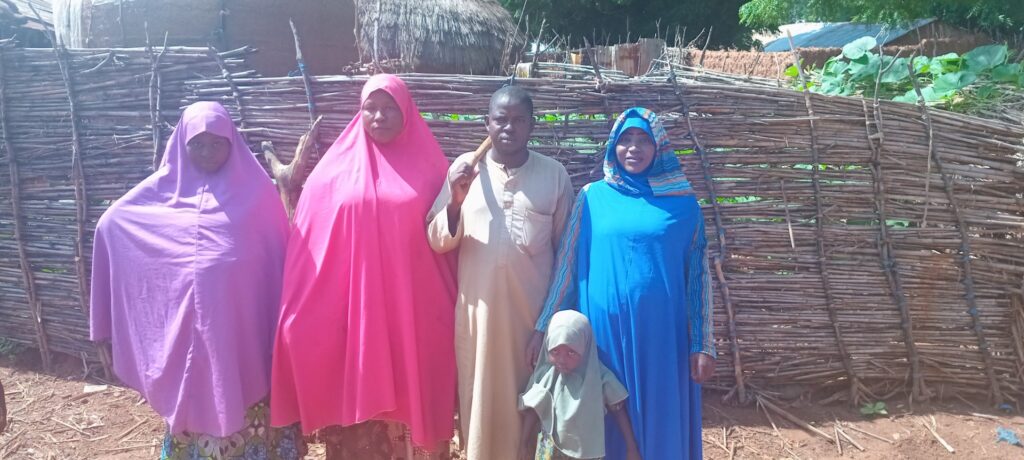Across many Nigerian communities, deeply rooted traditional and cultural norms restrict women not only from participating in household and community decision making but also in income-generating activities and public life. These long-standing beliefs reinforce gender hierarchies that leave women economically dependent and socially marginalized.
For Aliyu Yusuf, a resident of Botoro Gadi, a small rural community in Kebbi State, these norms have always shaped how he viewed the roles of his wives and as a result, allowing them to be part of any community discussions or do anything economically viable was unthinkable because he believed that decision making and providing for the family were his responsibilities alone.
But unbeknownst to the 40-year-old farmer, news of the Community Reflective Sessions (CRS) filtering through his neighborhood would spark a huge mindset shift.
These community reflective sessions, introduced as part of the Nigeria for Women Project (NFWP) were designed to deliver culturally relevant dialogue sessions that addressed gender roles, decision making power, household responsibilities, and the impact of gender-based violence.
As news of the imminent activity gained momentum in Aliyu’s neighborhood, so did the interest from his wives who were always excited to share the possible benefits of joining the sessions with their husbands. Finally, with his curiosity aroused, Aliyu decided to sign up his family to see for himself what everyone was talking about; and with this move, he quickly came to learn that unlike confrontational campaigns, the sessions used a gentle, reflective approach to encourage participants to question traditional roles and consider alternative, more inclusive behaviors, helping women and men engage meaningfully.
These group discussions, which provided safe spaces for Aliyu’s wives Aisha, Hassana, and Fatima to express themselves, also posed thought-provoking questions for Aliyu, who soon found the conversations insightful, and began participating regularly to hear from other men whose experiences highlighted the benefits of involving their wives in household decisions and supporting their economic activities.
According to Aliyu, the key turning point came during one of the social norms layering sessions, where he and his wives talked openly about household roles and the benefits of joint decision making.
“That session changed everything, as it helped me and my wives understand that we can share responsibilities and make decisions together,” he recalls with a thoughtful smile.
Today, Aliyu Yusuf is not only a vocal supporter of the women economic empowerment in his community but also actively encourages others to the same, and with his support, his wives have started a small groundnut business that generates additional income and eases the financial pressure on their household.
“Before, we could not afford to cook every day. But now, even if I do not have money, they use theirs to buy food for the family, and during Sallah, I used to be able to buy only one outfit for each child, but now we are able to get two, along with shoes,” he explains.
And beyond financial improvements, Aliyu speaks of a deeper change in the dynamic within his community. “For the first time, I feel supported and respected in my home and community because my wives are supporting me in getting minor household needs through their income generated from the sale of groundnuts.”
With Aliyu’s transformation, others in Botoro Gadi have taken notice, with men who once dismissed the sessions starting to attend, encouraged by wives or moved by the changes they observe in their Neighbours’ homes. Slowly, the community is beginning to shift, as more couples are making decisions together, with more women contributing to family income. Clearly, the stigma around women’s leadership and economic activity is gradually giving way to support.
By challenging long-standing social norms and promoting inclusive dialogue, the social norms intervention through reflective sessions and compound meetings is helping communities like Botoro Gadi create a more equitable future, one household at a time.
The NFWP is being implemented by CCSI in collaboration with the World Bank, Plan International and the Project Coordination Units of the Federal and State Ministries of Women Affairs in the six implementing states.
